Tobacco growers in Switzerland still exist. VILLIGER SÖHNE AG employees had the chance to meet one of them.
VILLIGER staff event on a tobacco field in the very heart of Switzerland
Did you know that tobacco is still grown in Switzerland? Approximately 140 tobacco farmers cultivate around 400 hectares of farmland, with a downward trend. In Switzerland, 85% of the tobacco-growing areas are located in western Switzerland (Broye Valley in Fribourg and Vaud). The remaining 15% is distributed across German-speaking Swiss cantons, Jura, and the Rhone Valley.
Off to Geuensee to witness tobacco production on the Feldmatt farm
On September 12, 2023, VILLIGER SÖHNE AG employees were able to get a first-hand look at how tobacco is grown in Switzerland. We went on an excursion to the Egli family’s Feldmatt farm in Geuensee. Labor-intensive tobacco production has been an integral part of the family history for four decades.
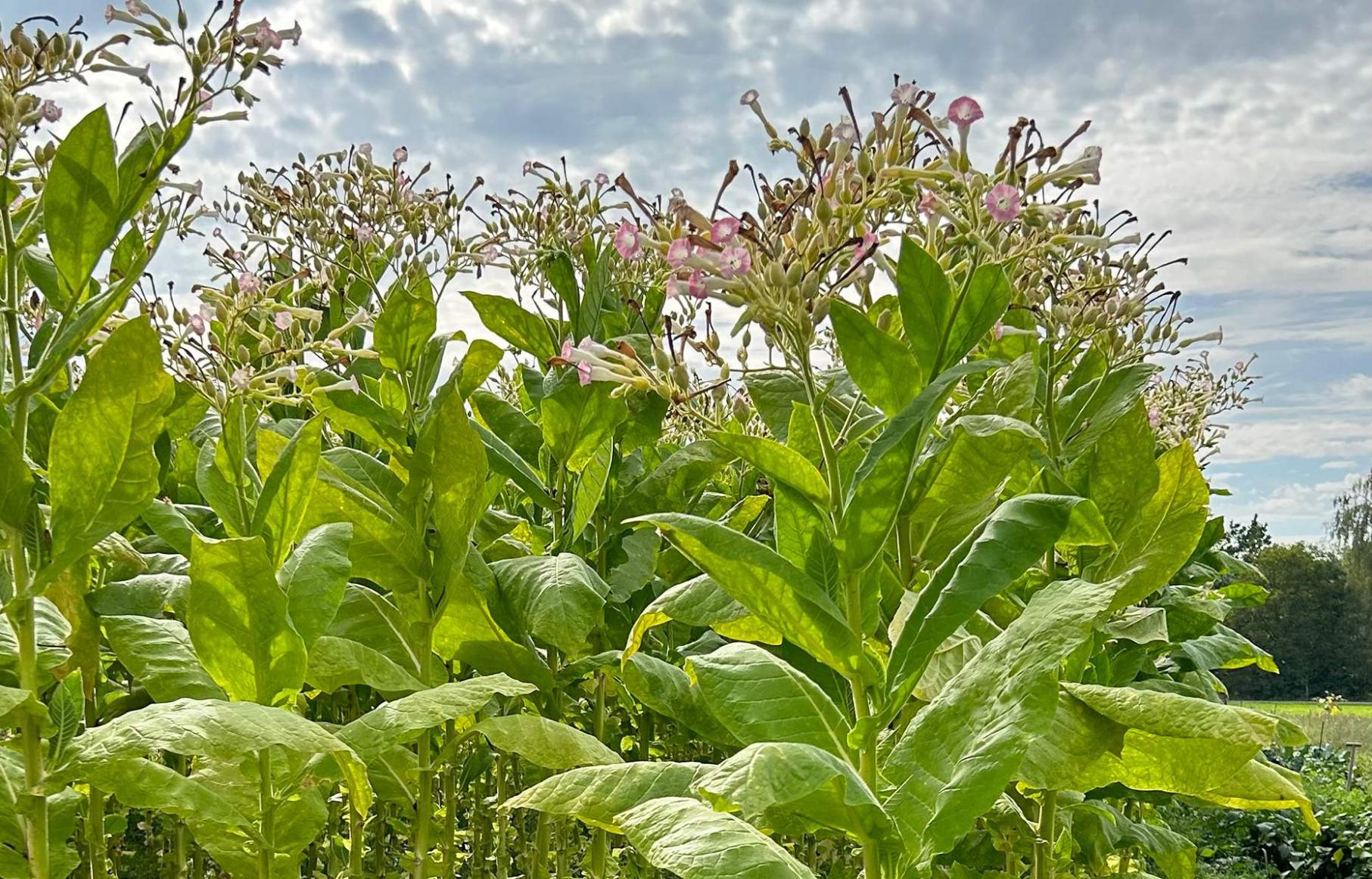
Tobacco harvested by hand for the best quality
We started the afternoon in the tobacco field, where we learned much about the tobacco plants, which can grow over two meters. We were unaware that the tobacco leaves are harvested by hand in up to five passes from early July onwards.
After each pass, the plants have time to mature their newly growing leaves to develop the desired flavors. The seeds extracted from the impressive flowers are so tiny that they cannot be used for sowing. That’s why they are first coated with clay. In March, seedling production begins in foil tunnels to ensure the seedlings can be planted out in May.
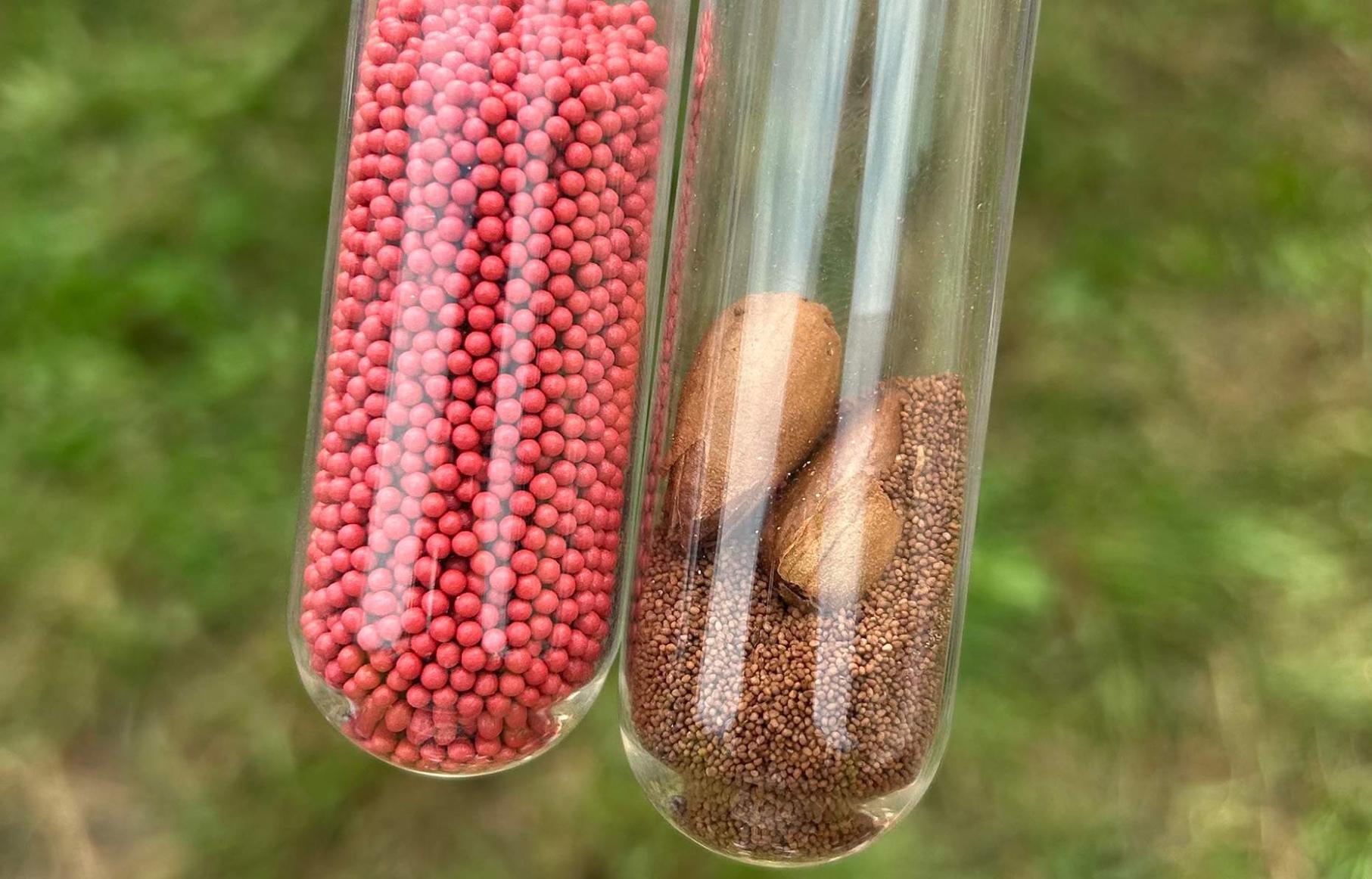
The ideal drying process for golden brown tobacco leaves
After the growing phase during summer, the leaves harvested by hand are dried in the Egli family’s tobacco barn. Using a modified sewing machine, Patrick Egli first sews the individual leaves together into bundles and then hangs them in loose rows. Sufficient space between the leaves is essential: It is the only way to ensure optimum air drying and prevent mold from forming. The barn’s height, enough windows for air supply, and decent air circulation are also crucial to ensure the tobacco leaves can dry adequately.
Wondering how long this drying process takes? It depends much on the weather. Before drying, the harvested leaves contain approximately 80 to 90 percent water. After drying, that water content is reduced to 15 to 25 percent. Depending on the type of tobacco, the leaves are golden brown after drying – the Egli family uses Burley. Burley is mainly used as filler tobacco for cigarettes and cigarillos.
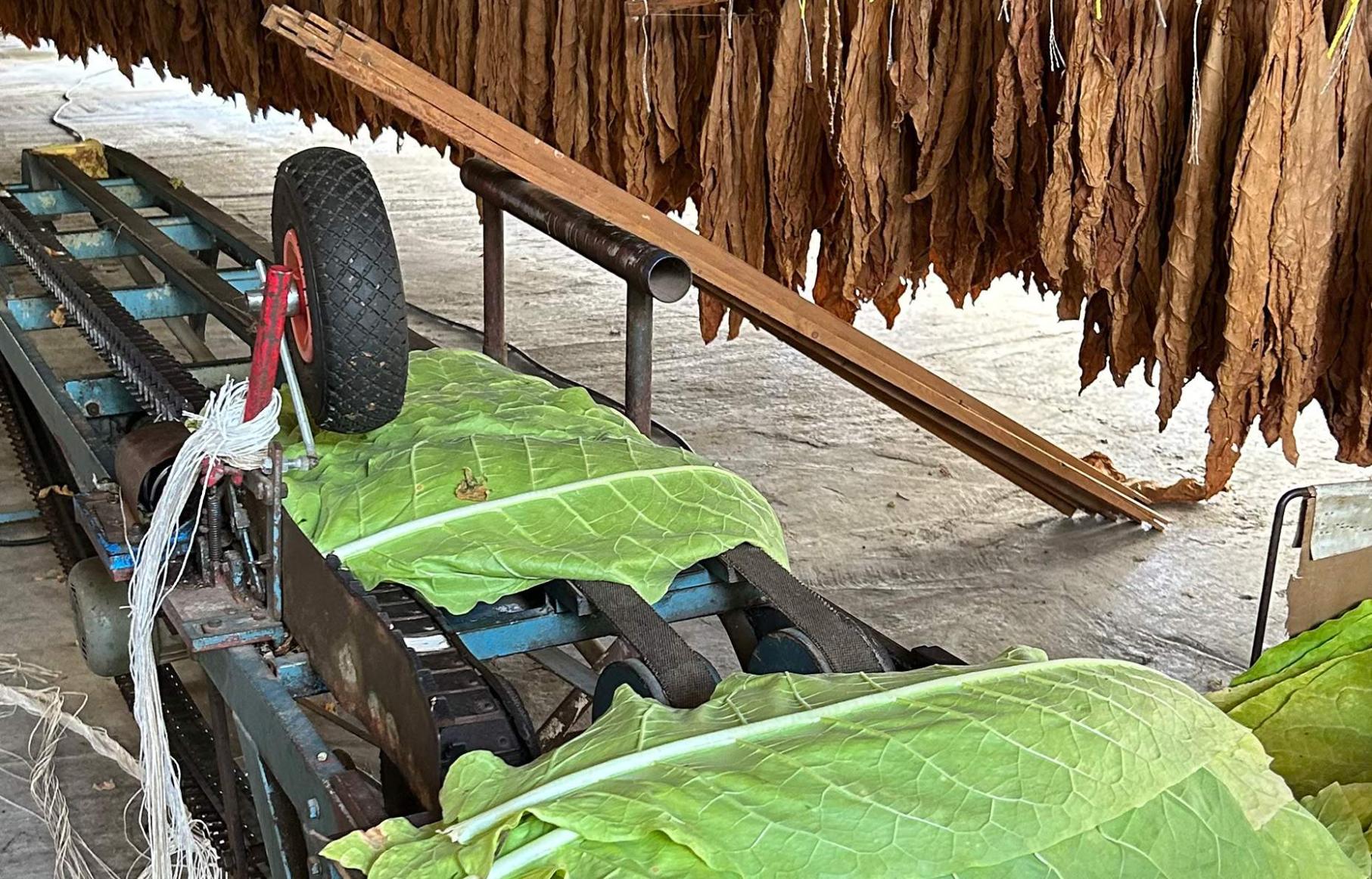
The myth of heavy pesticide use in Swiss tobacco production
After a tour of the fields and barn, Francis Egger (Secretary General of Swiss Tabac, Payerne) gave us a talk on tobacco production in Switzerland. In his presentation, he spoke about the organization of the industry, its significance and importance, and the history of tobacco growing in Switzerland. We were impressed to learn that it takes 2,000 hours to harvest each hectare of tobacco field. He also explained that the use of pesticides in Switzerland is tightly regulated and controlled, contrary to the popular myth: A harvest is not sent for further processing if it fails this test.
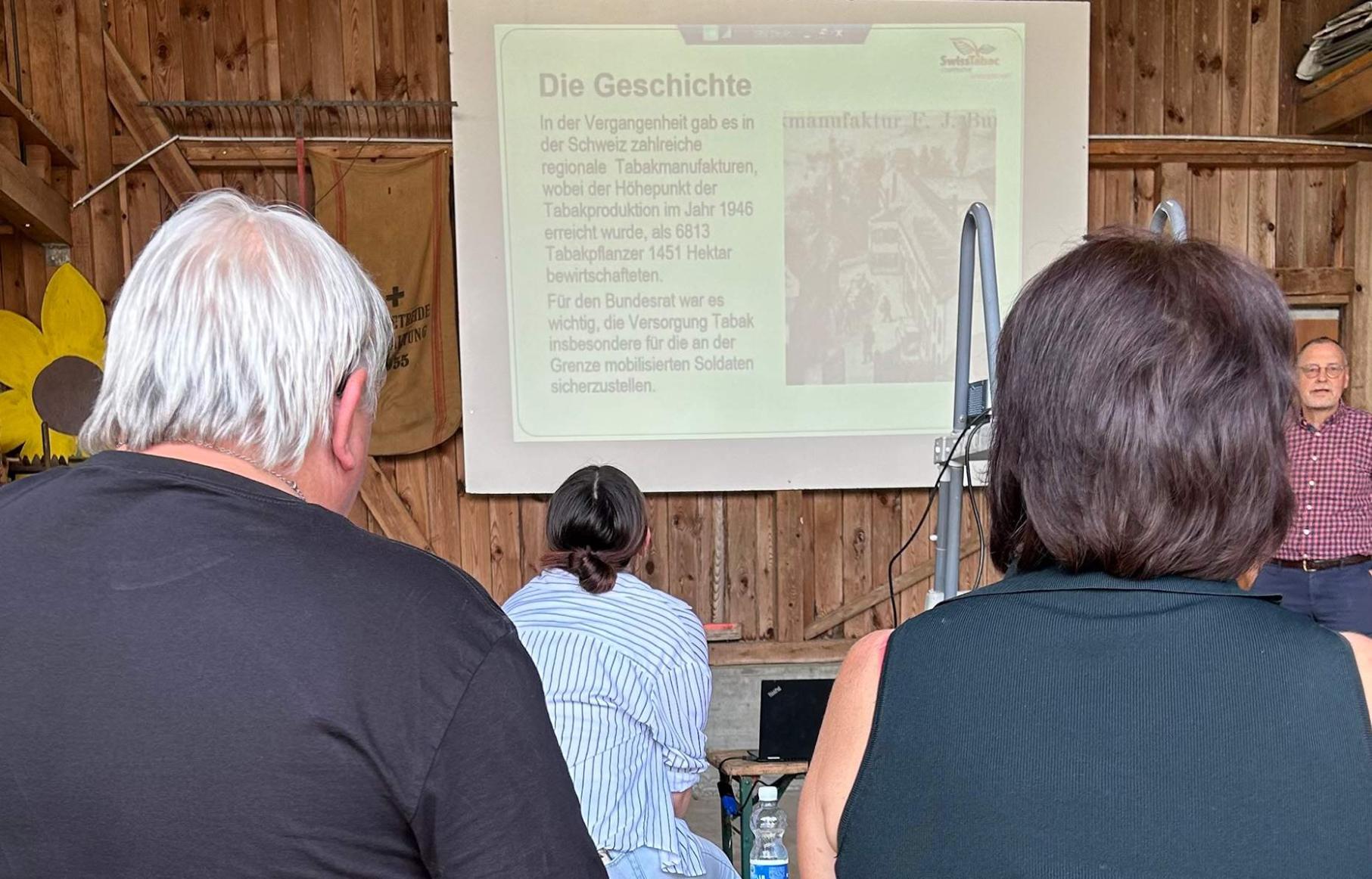
A cozy end and exciting conversations
After the informative part about Swiss tobacco production, the Egli family showed us the rest of their farm. They also grow maize, cereals, grass, and various vegetables, which they sell directly from the farm, and keep dairy cows and laying hens.
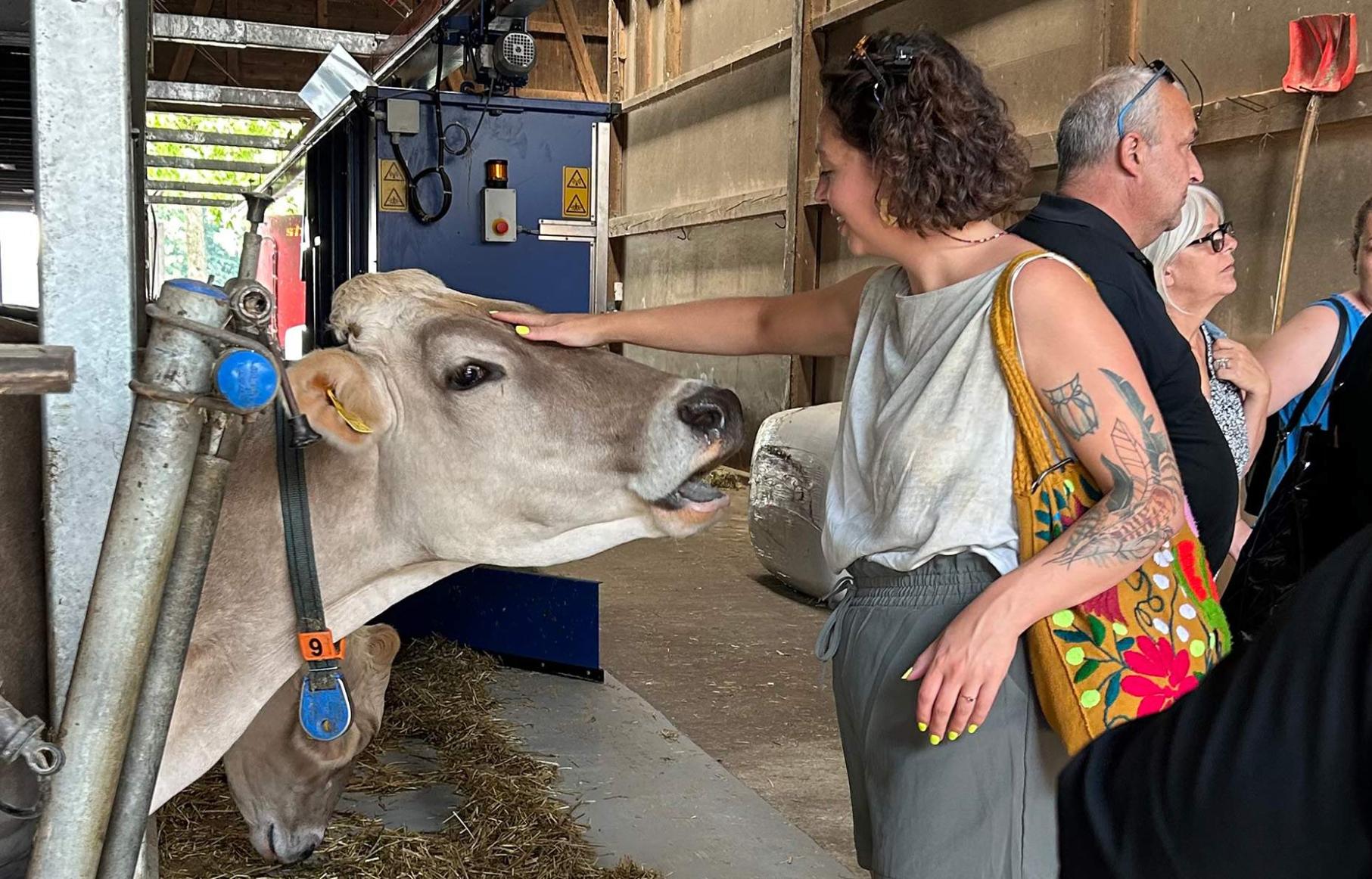
Afterward, everyone enjoyed an aperitif and lively conversation, sharing new insights into the world of Swiss tobacco.
We would like to thank Werner Rudin, Operations Manager of VILLIGER SÖHNE AG Switzerland, for making this informative afternoon possible. Special thanks to the Egli family for the warm welcome on their farm and Francis Egger for providing valuable insights into the tobacco world.